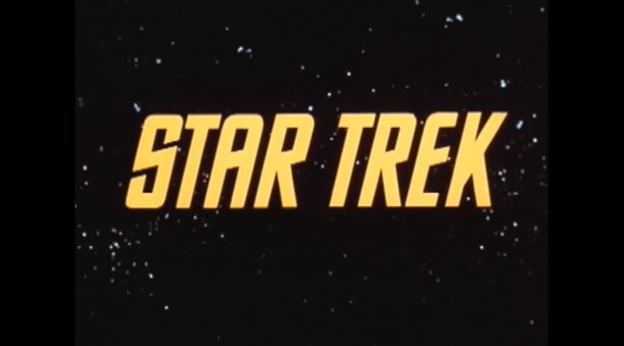
Unless you’re Kurt Hanson, you might not have it marked on your calendar, but today is the 50th anniversary of Star Trek, the seminal TV series that first debuted on NBC in 1966. Created by the innovative Gene Roddenberry, the show took one of the most circuitous paths to success ever. It was cancelled three years after it began its run on prime time TV, but was resurrected through syndicated reruns where it went on to build a huge cult following that is still going strong today.
Far from a Trekkie, I was a fan of what is now known as “The Original Series.” At the center of “Star Trek” was always Captain James T. Kirk and his first officer, Mr. Spock. As a team alongside an able crew, they steered their starship Enterprise through amazing adventures that resonated with 20th century TV viewers. One of my mentors – Tom Bender – used to refer to programming a radio station as analogous to captaining a starship. Both jobs require knowledge, style, finesse, leadership skills, a great crew, and a complete tool kit.
In thinking about the Kirk philosophy, there are some wonderful parables that hold true for what’s required of programmers in radio today. So in honor of “Star Trek’s” anniversary, here’s my list of 12 Captain Kirk-isms that apply to every radio P.D. (with a little help from some of the other crew members on the Enterprise).
1. Hire a Spock
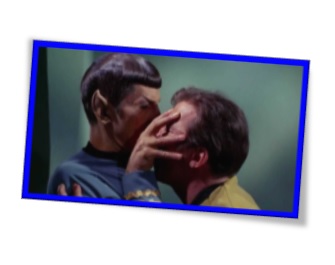 Like Kirk, most program directors are freewheeling, creative people who love to dream big things. That’s why there’s a strong need to have that dispassionate, objective logician on the team like Spock – the guy who is never afraid to whisper in your ear, “You might want to rethink that plan, Jim.”
Like Kirk, most program directors are freewheeling, creative people who love to dream big things. That’s why there’s a strong need to have that dispassionate, objective logician on the team like Spock – the guy who is never afraid to whisper in your ear, “You might want to rethink that plan, Jim.”
It’s also essential that your key assistant possesses qualities far different from yours. While they shared the same goals,, Kirk and Spock couldn’t have been more further apart, bringing unique talents and attributes to the Enterprise. Complementary assets build a strong management team.
Captain Kirk to Mr. Spock: “Hey, you’re the genius. You figure it out.”
They also had the benefit of the Vulcan Mind Meld, something that every P.D. could use. It was a surreal way two beings can share the same thoughts, the same goals, and the same aspirations. It is essential that everyone’s on the same page, whether you’re the beneficiary of this intergalactic psychological trick or not.
2. Diversify your staff.
Even back in the ‘60s when the show was created, Roddenberry envisioned a team that went well beyond the stereotypical swashbuckling, white male heroes. The crew of the Enterprise was meant to represent a diverse future, but with a strong suggestion to 1960’s viewers that groups of workers perform better because of their differences, not because of their homogeneity.
I am often seated in conference rooms with a group of white guys, and while business gets conducted, I am also keenly aware of how the team’s mission could be advanced further with a more diverse group with different outlooks and perspectives.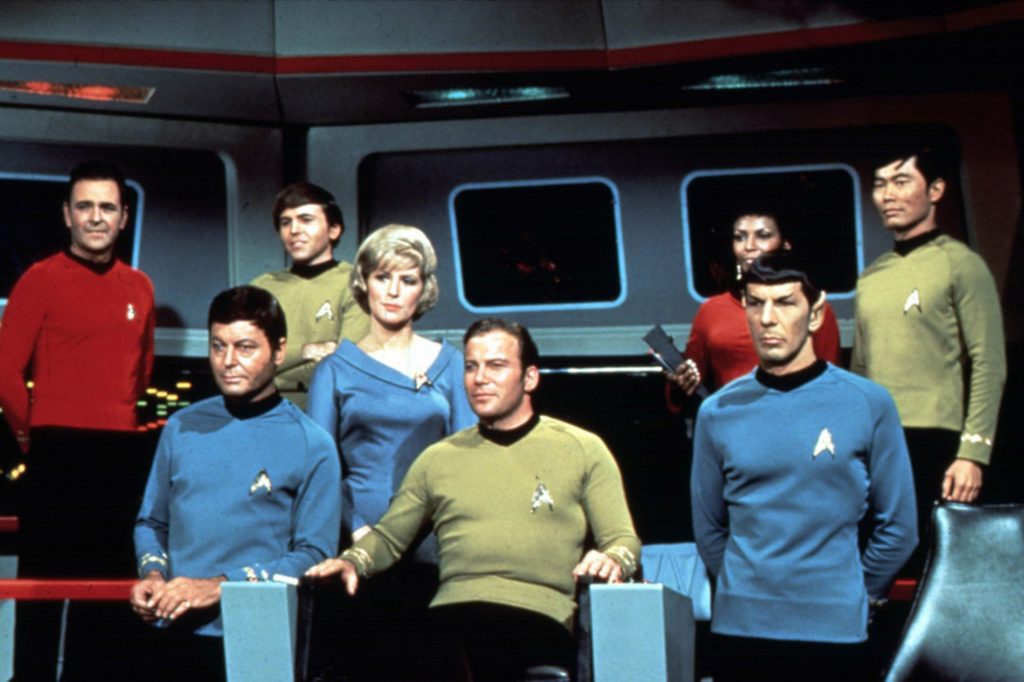
Captain Kirk: “The prejudices people feel about each other disappear when they get to know each other.”
3. Respect your team.
A hallmark of how business was conducted on the Enterprise was typified by Kirk’s regard for his crew. He consulted with them at all times, deferring to them about matters outside his area of his expertise.
Kirk didn’t always listen to them, but each member of the crew had the satisfaction of knowing he valued their opinion.
Captain Kirk: “One of the advantages of being a Captain is being able to ask for advice without necessarily having to take it.”
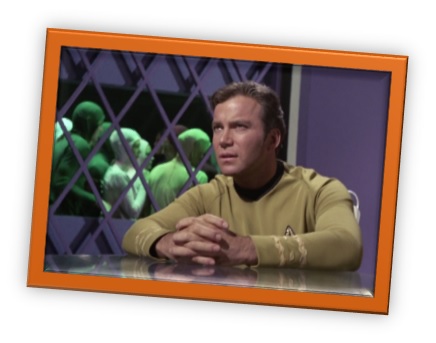 4. Train your crew.
4. Train your crew.
Whether your mission is seeking out new worlds or building a great radio brand, you cannot do it with a team that lacks experience and the proper training. With the crew’s life on the line and knowing the buck stopped with the captain’s chair, Kirk was well aware of the value of preparation.
Captain Kirk: “All your people must learn before you can reach for the stars.”
5. Trust your gut.
Anybody who has watched “The Original Series” knows the common thread from adventure to adventure revolved around Kirk listening to the available data – but then making a gut call. Space travel is a combination of facts – math and science. But it is also dependent on making the right call and trusting your instincts. The same, of course, is abundantly true in radio programming.
Captain Kirk to Mr. Spock: “Intuition, however illogical, is recognized as a command prerogative.”
6. Creativity doesn’t just happen.
It’s acquired over time. The captain and crew of the Enterprise learned from every mission, often applying those lessons to future challenges. But there’s no formula for simply conjuring up problem-solving skills and creative brilliance. These things don’t just happen.
Captain Kirk: “Genius doesn’t work on an assembly line basis. You can’t simply say, ‘Today, I will be brilliant.’”
7. Respect the engineering department.
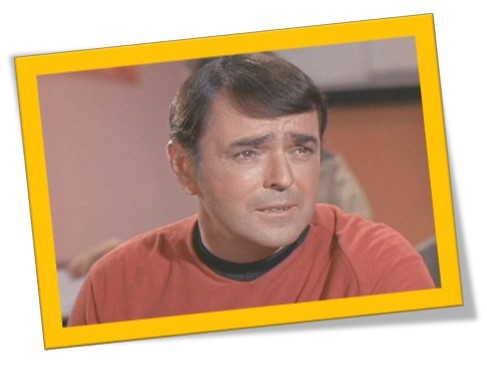 Captain Kirk knew his ship well, but he also knew what he didn’t know. And that’s where the ship’s engineer, Montgomery Scott (or “Scotty”) came into play. Whenever the Enterprise came under attack or experienced an untimely event, Kirk’s first call was to the engineering room and a terse “Damage, Mr. Scott?”
Captain Kirk knew his ship well, but he also knew what he didn’t know. And that’s where the ship’s engineer, Montgomery Scott (or “Scotty”) came into play. Whenever the Enterprise came under attack or experienced an untimely event, Kirk’s first call was to the engineering room and a terse “Damage, Mr. Scott?”
Like any viable and competitive radio station, a starship’s success is tied to an engineer’s ability to ensure every key component is in working condition. Whether you’re chasing ratings or Klingons, whether it’s the transmitter or the transporter, you have to respect the people who are responsible for its condition and function. There’s a lot riding on it.
Captain Kirk: “Beam me up, Scotty.”
8. Don’t settle for the status quo.
You don’t achieve franchise status in the entertainment industry or sustain a brand for five decades without a sense of adventure. Kirk was not a fan of the mundane. His curiosity, positive spirit, and desire to do good were all traits that inspirred the crew of the Enterprise to make its mark and do great things.
And so it is for any radio station that has that desire for greatness. Rarely does it happen without a strong sense of pushing the envelope and seeking out new missions, goals, and achievements.
Captain Kirk: “Explore strange new worlds, to seek out new life and new civilizations, to boldly go where no man has gone before.”
9. Use every communication channel possible.
Kirk knew that every connection point was critical on his 5-year mission. Whether communicating with aliens or enemy attackers, Kirk made use of all the tools.
Chief Communications Officer Uhura: “Hailing on all frequencies.”
Now that’s a statement for our digital times.
10. Don’t get bogged down in the bureaucracy.
James T. Kirk was a considerate, patient leader, but was always aware of one of the most precious commodities: time. And so it is in radio, where programmers are typically multitasking, trying to make the most of their allotted time. The captain would most certainly agree.
Captain Kirk: “A meeting is an event where minutes are taken and hours wasted.”
He would not have enjoyed department head meetings.
11. Above all else, do something.
Kirk was a man of action, not afraid to hack his way to a solution. Rarely did he stand pat. More often than not, he trusted his instincts, his crew, and his starship to perform when the situation demanded it. Too often programmers become paralyzed by pressure, whether it’s from the ratings or up above. It oftentimes leads to what’s known as “analysis paralysis.” Captain Kirk had a response for all that blathering:
Captain Kirk: “No more blah, blah, blah.”
 12. Appreciate your role and your mission.
12. Appreciate your role and your mission.
Sometimes it’s easy to get caught up in a downdraft of negativity. Kirk displayed a certain joie de vivre – being in the moment, even when the situation looked most dire. He communicated that spirit to his entire crew as they approached their mission with élan and enthusiasm. Perhaps that feeling is best conveyed by the least emotional person on the team, the Enterprise’s First Officer:
Mr. Spock: “Fascinating.”
It is often amazing to think about how many of today’s highly successful professionals were influenced by the stars of TV shows and movies. How many of today’s lawyers were fans of Perry Mason or L.A. Law? How many people working in forensic medicine were influenced by CSI? And weren’t all those sports agents inspired by Jerry McGuire?
In the case of the Star Trek series – alive and going strong at the ripe old age of 50 – the creative writing an vision of Gene Roddenberry, and the honest portrayal of Captain James T. Kirk by William Shatner may still be influencing thousands of business leaders and managers today.
Even Program Directors.
Live long and prosper.
- What To Do If Your Radio Station Goes Through A Midlife Crisis - April 25, 2025
- A 2020 Lesson?It Could All Be Gone In A Flash - April 24, 2025
- How AI Can Give Radio Personalities More…PERSONALITY - April 23, 2025




I enjoyed reading this star trek/radio broadcasting analogy. It is quite accurate and made some excellent points. One that I would like to add. Star Fleet seldom interfered and let their captains run their own ships. This was very important if law and order as well as peace and harmony were to be maintained in the universe.
But keep in mind Star Fleet never experienced consolidation! Thanks for the comment, Curt.
As much as I love this article (and pretty much anything that ties together two of my favorite topics — radio and “Star Trek”), the Trekkie in me is compelled to comment that Kirk never actually said the words “beam me up, Scotty.” 🙂
I believe you’re right, Keith (although I think the line may have been uttered in one of the films). Thanks for being such a nerd, and live long & prosper.
Hi FRED… to paraphrase Kirk, radio would do well to:
“Explore strange new worlds (today’s technology and digital array), to seek out new life and new civilizations (connect with teens, Gen Z and millenials), to boldly go where no man has gone before (radio hasn’t gone in a while).”
Just saying.
Lee, that’s “fascinating.” It sounds like it could be more than a 5 year mission! Thanks for reading the blog and commenting.
Think you’re right Fred!… better get started.
To piggyback on this thought, I would add #13 to the list: Have a VISION. This opening line from Star Trek was their vision statement. It gave Kirk and his team direction. Vision is vital to any endeavor.
Excellent piece, Fred.
Michael, you’re right. It was a true mission statement before there were mission statements. Thanks for the comment.
Love this. I think I’ve learned more about efficient command structures from Star Trek than I have from reading books about business.
At times, I have to agree. Amazing how its influence has endured. Thanks, Dustin.
Temptation is to say “Fascinating” but overdone and inaccurate – going instead with “Brilliant”…nice one !
Many thanks, Tom!
Great article. In my experience I have seen that (contrary to Capt. Kirk) many radio industry leaders don’t like having someone like Mr. Spock in their team due to their personal issues of insecurity.
The Spock influence is a real asset. It’s important to have that trusted voice telling you that your idea is dumb (illogical). Thanks, Lorenzo.
Expanding on the ideas of diversity and teamwork, I would argue that ’60s spy shows may have had the best examples ever of equal-yet-different partners–including Solo and Kuryakin, West (the other James T.) and Gordon, Robinson and Scott (the other “Scotty”), and Steed and Mrs. Peel. And, yes, I’m one of those who think that Starfleet may have been influenced by U.N.C.L.E.
Eric, more evidence that those TV shows we watched as kids were more than just a little influential. Thanks for chiming in.
And like so many of the episodes, there’d be a torrent on the bridge, the enterprise (lower case intended) under attack only to shortly after stabilize and everyone gets back to their jobs. Kind of the typical month or sometimes just a day in radio.
Fascinating indeed.
Bill, you’re making radio sound like the day to day adventure that it is. Thanks for commenting.